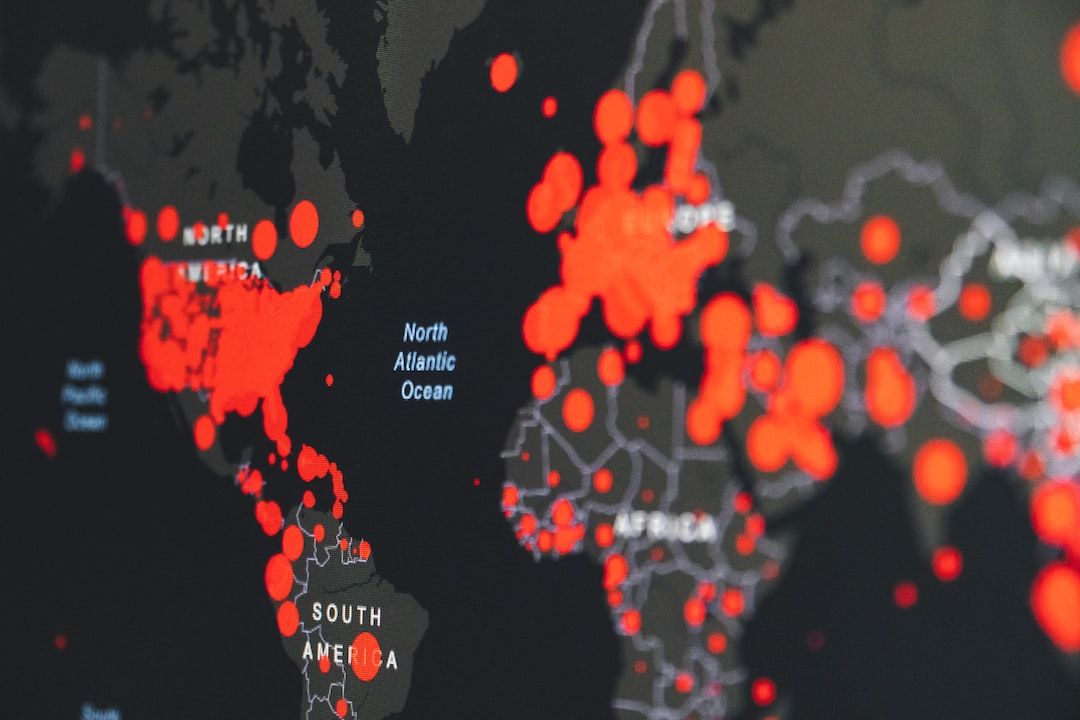Hello everyone! Tony Brennan, CEO of Talisium, here to talk about a topic that's been affecting us all in one way or another: COVID-19 and its impact on South Africa's health system.
It's no secret that the COVID-19 pandemic has put a strain on healthcare systems all over the world, and South Africa is no exception. According to the South African Medical Research Council, as of 1st February 2023, South Africa has reported over 2 million confirmed cases of COVID-19, with over 56,000 deaths. This has put an immense pressure on the health system, with hospitals and clinics struggling to keep up with the demand for care.
Stress and burnout
According to a study published in the South African Journal of Psychiatry, over 75% of healthcare workers in South Africa reported high levels of stress and burnout during the COVID-19 pandemic. This has had a significant impact on their ability to provide care to patients and has increased the overall burden on the healthcare system.
So what does this actually look like on a daily basis?
- Decreased Workforce: The stress and burnout experienced by healthcare workers has resulted in many workers leaving the profession or taking time off, leading to a shortage of available healthcare workers and reducing the overall capacity of the healthcare system.
- Reduced Job Performance: High levels of stress and burnout can lead to decreased job performance and decreased quality of care. This includes things like increased errors, reduced attention to detail, and decreased patient satisfaction.
- Increased Absenteeism: Healthcare workers who are experiencing high levels of stress and burnout may be more likely to take time off work, further reducing the available workforce and increasing the burden on the remaining healthcare workers.
- Increased Risk of Compassion Fatigue: Compassion fatigue is a common condition among healthcare workers who are exposed to high levels of stress and trauma. It can lead to decreased empathy and decreased ability to provide care to patients.
- Decreased Resilience: The high levels of stress and burnout experienced by healthcare workers can lead to decreased resilience, making it more difficult for workers to bounce back from challenges and continue to provide high-quality care.
Addressing the issue of stress and burnout among healthcare workers is crucial in ensuring that the healthcare system in South Africa remains functional and capable of providing high-quality care to patients.
Non-communicable diseases
The COVID-19 pandemic has also had a significant impact on non-communicable diseases, with many patients in South Africa unable to access care due to lockdowns and the fear of contracting the virus.
According to a study published in the South African Medical Journal, the COVID-19 pandemic has resulted in a significant increase in the number of NCD-related deaths in South Africa, with an estimated 10,000 additional NCD-related deaths expected by the end of the year.
Specifically though, what's contributing to these increasing NCD-related deaths?
- Disruptions to NCD Care: The COVID-19 pandemic has led to disruptions in the delivery of NCD care, including the closure of NCD clinics, reduced access to essential NCD medicines, and decreased availability of routine health checks. This has resulted in a decline in the overall management of NCDs and increased the risk of NCD-related complications and deaths.
- Increased Risk of NCDs: The COVID-19 pandemic has resulted in increased stress levels, decreased physical activity, and changes in diet, which can increase the risk of NCDs, such as diabetes, cardiovascular disease, and cancer.
- Delayed Diagnosis and Treatment: The disruption of NCD care has led to delayed diagnoses and treatments for NCDs, which can result in more severe health outcomes and increased costs for the healthcare system.
- Increased Economic Burden: The COVID-19 pandemic has had a significant impact on the economy, leading to increased poverty and unemployment. This has resulted in decreased access to healthy food, increased stress levels, and decreased access to health care, all of which can increase the risk of NCDs.
- Decreased Access to Screening and Prevention: The COVID-19 pandemic has resulted in decreased access to NCD screening and prevention programs, which can result in missed opportunities for early detection and treatment of NCDs.
To ensure the healthcare system is prepared to respond to the ongoing threat posed by NCDs it is crucial to address the impact of the COVID-19 pandemic on NCDs in South Africa.
Notwithstanding the above issues, the COVID-19 pandemic has also provided an opportunity to learn from other countries and improve the health outcomes in South Africa.
Telemedicine and remote monitoringOne opportunity is to look at countries like Germany and Australia who have successfully used telemedicine and remote monitoring to improve access to care and reduce the burden on their healthcare systems. How did they do this?
- Virtual consultations: Both Germany and Australia implemented virtual consultations as a way for patients to receive medical advice and treatment from the comfort of their homes, reducing the need for in-person visits and reducing the risk of transmission.
- Remote monitoring: Through the use of remote monitoring devices and mobile health apps, patients could track their vital signs and symptoms from home, reducing the need for hospitalisation and reducing the burden on the healthcare system.
- E-Prescriptions: In both Germany and Australia, e-prescriptions were introduced as a way to reduce the risk of exposure to COVID-19 while still ensuring that patients had access to the medications they needed.
- Tele-rehabilitation: Tele-rehabilitation was used to provide physical and occupational therapy to patients who were unable to visit a rehabilitation centre in person, reducing the risk of transmission and allowing patients to receive the care they needed.
These initiatives demonstrate how telemedicine and remote monitoring can be effective tools in improving access to care and reducing the burden on healthcare systems during a pandemic. By leveraging technology, Germany and Australia were able to ensure that patients had access to the care they needed, even in the face of a global health crisis.
Communication and coordination
The second opportunity come from a study published in the Journal of Medical Systems which highlights the importance of effective communication and coordination between different levels of government and healthcare providers in managing the pandemic.
Countries like South Korea and Taiwan demonstrated the success of such efforts, and South Africa can learn from their experiences to improve its own response to future pandemics. Again, what did they do?
- Centralised Response: Both South Korea and Taiwan centralised their response to the pandemic, with a single entity responsible for coordinating and communicating the response efforts. This allowed for a clear and consistent message to be communicated to the public, reducing confusion and ensuring that everyone was working towards the same goals.
- Collaboration between government and healthcare providers: In both countries, there was close collaboration between the government and healthcare providers, with the government providing necessary resources and support to healthcare providers to ensure that they had the tools they needed to respond to the pandemic effectively.
- Rapid and Accurate Testing: Both South Korea and Taiwan implemented rapid and accurate testing protocols, which allowed for early detection and rapid response to outbreaks. This was crucial in controlling the spread of the virus and ensuring that patients received the care they needed.
- Public Communication: Both countries made a significant effort to communicate with the public and keep them informed about the pandemic. This included providing regular updates, clear guidance on measures to prevent the spread of the virus, and ensuring that the public had access to accurate information.
- Technology-Driven Monitoring and Surveillance: Both South Korea and Taiwan utilised technology to monitor and track the spread of the virus, allowing for a more efficient response and enabling them to quickly identify and respond to outbreaks.
These initiatives demonstrate how effective communication and coordination between different levels of government and healthcare providers can be crucial in managing a pandemic. By working together and leveraging technology, South Korea and Taiwan were able to control the spread of the virus and improve health outcomes for their populations.
So what is the outcome of all this? Clearly, the COVID-19 pandemic has had a profound impact on South Africa's health system, putting immense pressure on healthcare workers and causing disruptions to the delivery of care. However, it has also provided an opportunity to learn from other countries and improve the response to future pandemics.
By leveraging technology, improving communication and coordination, and investing in public health infrastructure, we can ensure a more resilient and effective healthcare system in South Africa.
Stay safe and take care of your health!
Tony Brennan, CEO of Talisium





